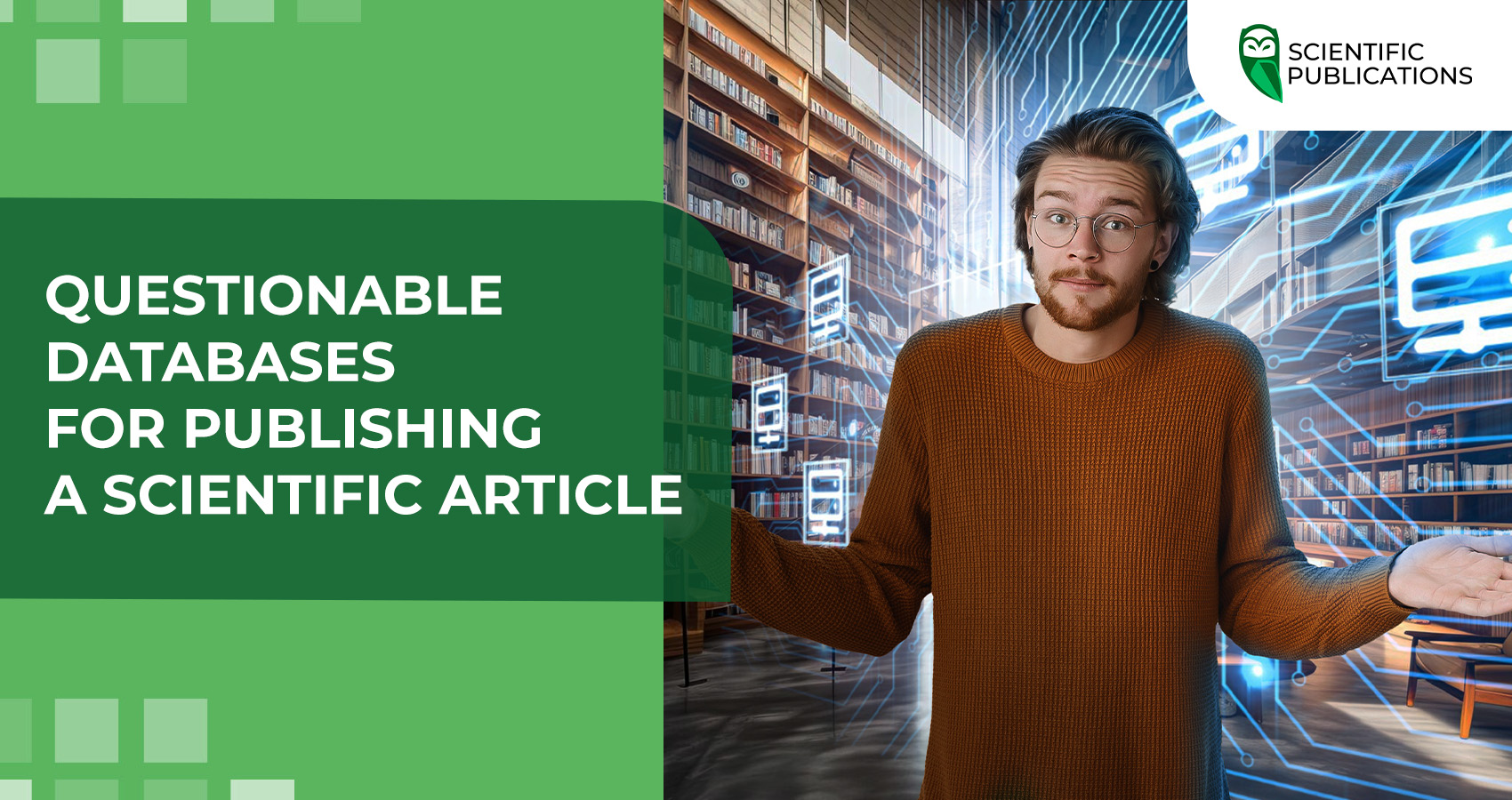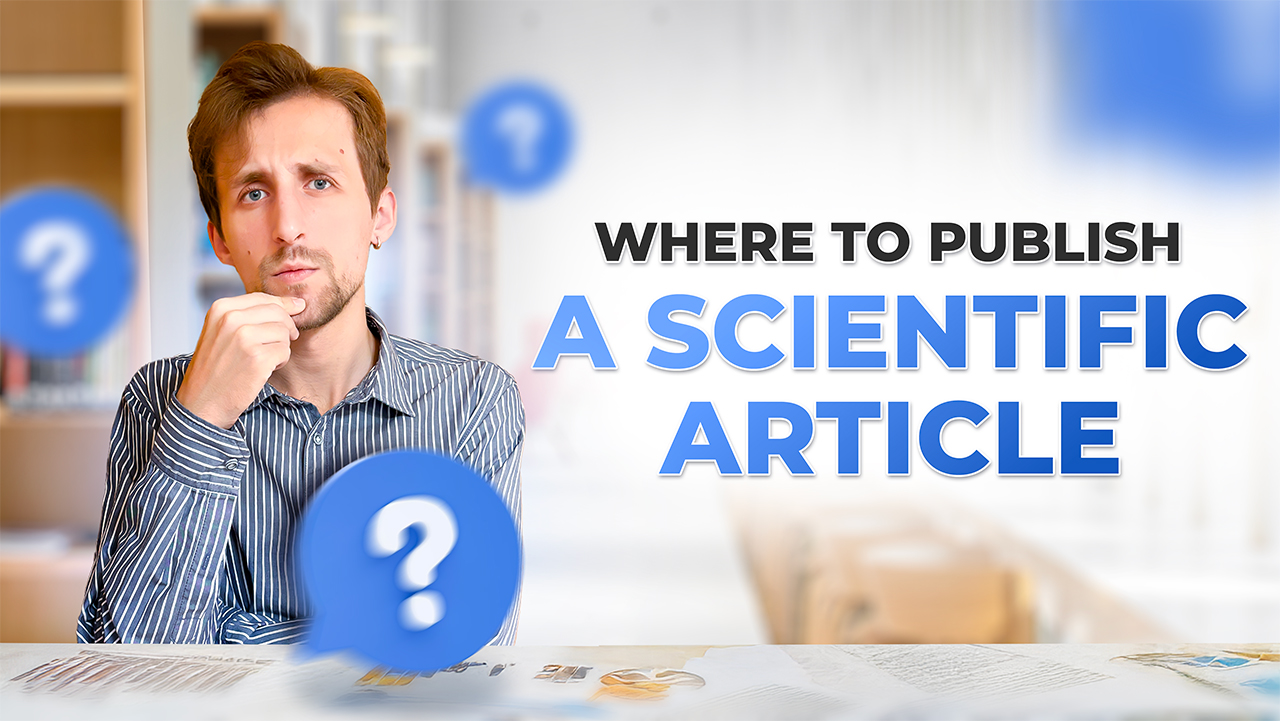In the course of research, scientists search for research as a source of information and inspiration in various scientometric databases. When conducting publication activities, researchers can make a mistake by choosing a dubious database to publish their research. Today we will examine which databases to avoid.

Russian Science Citation Index (RSCI)
Currently, the scientific community and the National Attestation Commission are actively discussing the issue of excluding the RSCI database from the list of peer-reviewed scientific periodicals for publishing the main scientific results of a dissertation.
The Russian Science Citation Index (RSCI) is a national database that primarily indexes Russian and Russian-language scientific publications. Its main goal is to increase the accessibility and visibility of research from Russia. At the same time, the RSCI has a low reputation in the international scientific community and is subject to controversial assessments.
Why does the RSCI receive poor reviews in the scientific community?
Non-compliance with international standards
The format and style of articles in Russian journals often differ from generally accepted international requirements.
Insufficient quality control
The RSCI has often been criticised for including journals with a poor level of peer review. The database may include journals that do not provide high standards of scientific expertise, which negatively affects the quality of published works, and ultimately hinders the overall development of science.
Small share of English-language content
The RSCI is characterised by a low share of English-language content. The bulk of the articles presented in the database are written in Russian. This creates significant difficulties for the English-speaking audience that does not speak Russian. As a result, the scientific results published in the RSCI remain inaccessible to the international community, which limits their impact on global science and reduces the integration of Russian research into the global scientific space.
Limited reputation at the international level
It is not considered an authoritative or prestigious database compared to platforms such as Scopus or Web of Science. This makes it difficult to find and cite research papers from Russia, as they do not have the same high visibility and recognition in the international scientific community.
Low impact factor
Many Russian journals have a low impact factor, which means that their articles are rarely cited in the scientific community. This indicates the limited impact of such publications on the development of scientific debate and the dissemination of knowledge.
Some scholars believe that a significant number of journals represented in the RSCI are of low quality, as they publish articles for a fee without proper or insufficient scientific review. In addition, it is pointed out that there are numerous publications with a low scientific level, which complicates the process of finding truly significant publications. In some cases, comments are made about possible manipulation of scientometric indicators by the RSCI administration.
Index Copernicus
Index Copernicus is an online scientometric database created in 1999 in Poland that contains information added by users, including information about research institutions, publications, and projects. It offers a number of tools for assessing scientific productivity, allowing to analyse the impact of research papers, publications, individual scientists or research institutions.
Index Copernicus is often mentioned in reviews by scholars as an indexing platform with a dubious reputation, which sparks active discussions about its reliability. It is noted that literature review articles based on the materials of this database are rare. As of 2024, Index Copernicus indexes tens of thousands of journals, and their number is growing every day.
Reasons for criticism of Index Copernicus
Presence of predatory journals
This database is known for including predatory journals. These are commercially orientated publications that neglect peer review and publication ethics. They harm science and authors who spend time and money without receiving recognition, as such journals are not included in reputable databases and can be excluded from registers. Read more about predatory journals in our article.
Lack of strict standards
Index Copernicus has been criticised for indexing journals with minimal or no quality control. Many of the journals included in this database may not meet generally accepted international standards for scientific publications.
Reputation among scientists
Unlike reputable databases such as Scopus, Web of Science, ScienceDirect, PubMed, or Springer, Index Copernicus does not have a high status in the scientific community. Publications in journals that are indexed only in Index Copernicus are often questionable.
Publishing a scientific article is an important step in the professional development of every scientist. It is necessary for obtaining academic titles and degrees, career advancement, successful completion of annual certification, obtaining grants, etc. However, publishing your work in databases with a dubious reputation can negatively affect your research career, authority, and the trust of your colleagues.
Choose a guaranteed publication of a scientific article in reputable databases and journals – contact “Scientific Publications”. By concluding a formal contract, you can be sure of the result. Do you need to publish in Scopus or Web of Science? Fill out the form below, and our manager will contact you as soon as possible. Together to new achievements!





